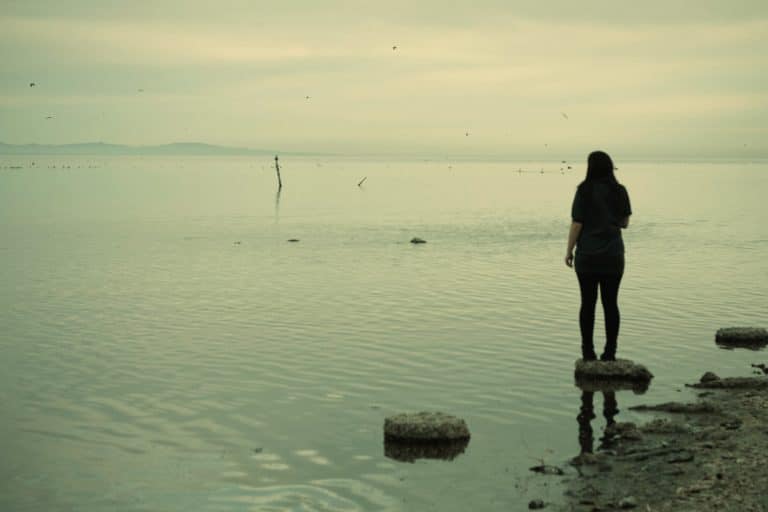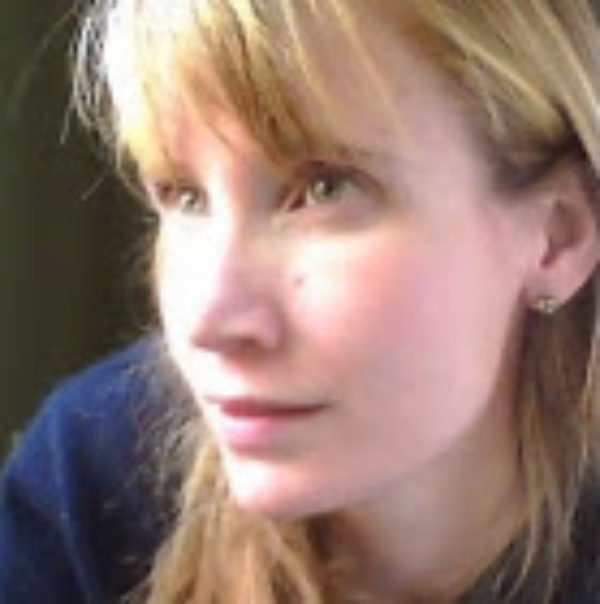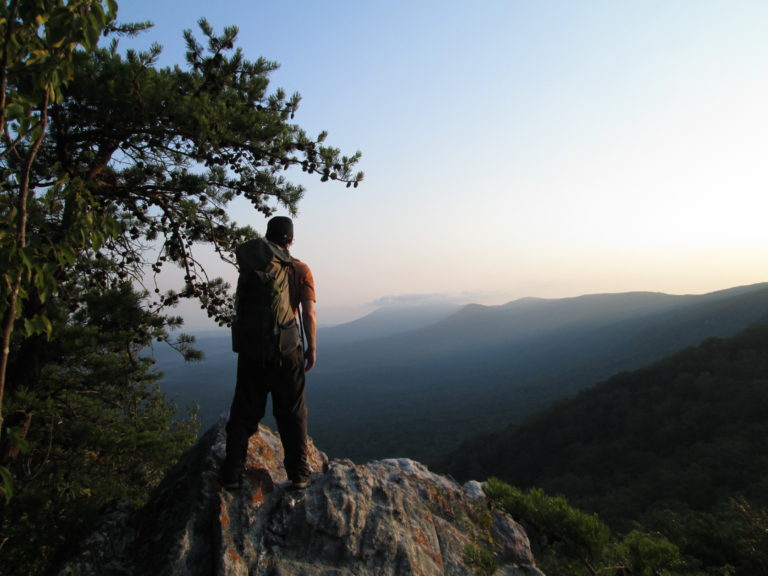
Image by Ashley Rose/Flickr (CC BY-NC-SA 2.0)..
The Indominatable Will of the Soul to Live: A Survivor’s Account of Suicide
Ten years ago this month, a chemical soup was brewing in my physical body, threatening to shut down organs and stop the beating of a heart that labored in distress.
The diligence of doctors and nurses kept my heart beating, counteracted the toxins, and saved my life.
For three days I was in a coma. For three days my soul refused to let go; demanded each breath continue. Mentally and emotionally I had surrendered and waved a white flag. Inexplicably, I had inner resources, a flickering flame that refused to be snuffed out or vanish into a wisp of smoke and vapor.
It took me years to communicate openly with these resources, to actually see them as divine gifts we all possess.
It required of me a willingness to celebrate the indomitable will power of my soul to live; it also required compassion to self when what had happened on that dark November night was assiduously avoided by those who had been key or minor figures in my life at that time.
Suicide. Everyone but the therapists tip-toed around it.
Silently I resumed my life post-November 2004 — and tried to place the fragments in a way I could understand.
I could not explain to those I loved how I woke nights, long after that day, grief-stricken over the poignant losses I could not verbalize. No one wanted to speak of this act, they did not want to be reminded of their own pain.
My brush with death haunted me for years to come. It drove a wedge between me and those who loved me and felt — after I had so quickly been willing to abandon them — I could not be trusted with their love so freely anymore.
Guilt I absorbed, as flashes of anger emerged within the relationships of my most intimate friends. I had committed an act of betrayal.
I cycled through therapists. Themes heavily based on Christian beliefs — that I needed to forgive my biological parents, that I needed to get over the trauma,and abuse, and move on — persisted. One therapist told me that until I went to my abusers and said “I forgive you” I would never be whole. For many years I let all these projected outside voices silence what I needed to say, to mourn.
For years I have honored, in silence, this season of endings and beginnings.
To share one’s own suicide attempt is harrowing; it brings up deeply polarizing emotions. There are many who believe that those who have committed suicide are selfish, mentally ill, weak, cowardly. These labels come from grief too heavy to bear. If you carry this stigma, who you are today is shadowed by who you were in a moment of losing your way.
On November 22, International Survivors of Suicide Loss Day, across the world women and men come together to mourn their heart-breaking losses and celebrate those lives that ended too soon.
Many will not take part in this community. Biologically we are wired for survival, and when someone attempts to die, executes that attempt and dies, the balance is disrupted. We celebrate, and rightly so, the resilience of the fighter who wins against all odds.
From birth to death, we fight to live, an unspoken code of our tribe.
Death that comes from natural causes we grieve and mourn deeply. Yet death by suicide adds another layer to the mourning process — the questions it raises and the often overwhelming feelings of abandonment planted deeply in the hearts of those left behind.
When I had returned back to my daily life I was asked to buck up, get better, and not think about it. Sharing my feelings resulted in “suicidal thoughts.” It was an effective shunning of a deeply traumatic experience; symptoms of weakness and brokenness had showed a hairline fracture in my character, or so I believed.
I was watched by colleagues, friends, and family. I had no memorial service to attend, no physical burial site to lay flowers on. I carried around a feeling of being alive and dead at the same time. I had been between both worlds. I needed to integrate that experience into my story, not excise it. My external world demanded I return to the light-hearted, sunshine-y optimist I had been months before, but I needed to grieve.
Working with a Native American healer and shaman, Miriam, finally brought me full circle to integrative wholeness. For years I had gone the route of traditional therapy: I read, I journaled, I communed with the divine. I still felt my energy blocked — a glacial tomb around the memories of that day.
The Native American belief system does not label mental distress as an illness or disease but an imbalance between the body, mind, and spirit — a symptom of a soul in need of spiritual help.
In traditional therapy a distressed psyche is treated with drugs. For those that need the chemical alchemy, those drugs are a wonderful gift, but how many cases of depression are masked by an antidepressant when the soul is calling out for alignment and harmony?
Miriam guided me through a long and transformative ceremony that showed me that healing was my birthright, and also most importantly, I needed to forgive myself. Forgive myself for not knowing how to go forward, forgive myself for giving up hope, forgive myself for being ashamed and guilty year after year.
I needed to forgive myself for not trusting my intuition and not holding up the flickering light of my inner resources when the shadows closed in.
I needed to forgive myself for an eviscerating eating disorder that broke me down and drove me to that night. I needed to forgive myself for the self-destruction of my body, forgive myself for believing that I was worthless and deserved all of the abuses at my biological parents’ hands.
I needed to forgive myself for not honoring how strong I had been, for having the courage to leave behind a biological tribe and find my place in the world.
I needed to forgive myself for having tried to take away the spark that is a divine gift, and I needed to forgive myself for hurting me, for hurting my soul already crushed by others. I needed to forgive myself for having not held myself up and refused anything but love, compassion and being seen.
Forgiveness brought me home; it allowed me to call back the part of me that had fled in terror during those three days in a coma; welcome back each beautiful and unique part of myself I had attempted to destroy — in heart-breaking parallel to those who had oppressed me physically, spiritually, and emotionally and attempted to break my spirit.
As the ceremony closed, I welcomed back the child, girl, and woman, and offered thanks.
Months after the ceremony the month of November returned, and with it that unique ache in my soul that I needed to mourn, but not knowing how.
One night wearied I began to weep as moonlight filled my room; I visualized the night I had chosen death over life.
I saw how after choking down one handful of pills after the other, I had crawled into my bed, and pulled the covers tightly around myself in a cocoon, turned over on my into the fetal position, and closed my eyes. From the distance of years, I saw this girl lying there, and I remembered the feelings that night — a raw imperative to escape the howling inside to be held and comforted, loved and nurtured.
I closed my eyes, and sent myself into that room, into that memory, and laid down on the bed spooning the shell of myself then, a hurt and lost soul, and held tight and promised it was going to be all right. That I would stay with her all night. I held her emaciated body — a testament of starving away the need for nourishment and physically refusing to fill the void of this massive hunger for love and acceptance by biological parents incapable of giving it. I held on tight, and I told her she was precious, worthy, and loved.
As the moon dimmed, and the sun began sending slivers of coral and gold into the sky, I no longer felt emptied with loss, but filled with compassion and love for every part of myself, and my journey.
I ask that we open up to the loss of those who have survived their own attempts and allow each man and woman to mourn, and grieve without shame. I ask that we consider how we support healing the soul, not the symptoms, and that we celebrate the inner resources of the divine spark in us all.

